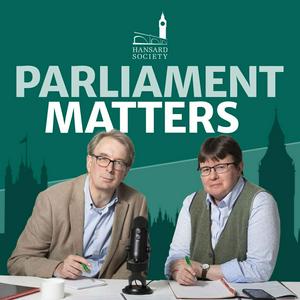Why is Britain’s first female cabinet minister almost invisible in our political memory?
In this episode we are joined by historian and author Nan Sloane, whose new biography of Margaret Bondfield has just been published, to uncover the remarkable and largely forgotten story of this pioneering figure.
Bondfield – a working-class trade unionist – became the first woman to serve in the British Cabinet yet is rarely mentioned alongside figures such as Nancy Astor or Ellen Wilkinson.
She did not enter politics through the suffrage movement. Instead, she rose through the male-dominated trade union movement, often as the only woman in the room. Born into a large working-class family in Somerset, she left school at thirteen to work in shops where staff were legally treated as domestic servants and endured punishing conditions. Driven by a fierce commitment to social justice, she became a powerful organiser, accomplished public speaker and a leading national figure within the labour movement.
Elected to Parliament in 1923, she made history in 1929 when she was appointed Minister of Labour, becoming the first woman to serve in the Cabinet and the first female Privy Counsellor. But it was, as one colleague put it, the worst job in government. In the grip of a deep economic crisis, unemployment was soaring, the national insurance system was stretched to breaking point, and painful decisions had to be taken. By 1931 the crisis had split the Labour Party and brought down the Government. Bondfield lost her seat and never returned to Parliament.
Rather than being remembered as a trailblazer, her legacy was overshadowed by economic crisis and party division. Was she a pioneer, a pragmatist caught in impossible circumstances, or a woman judged more harshly than her male colleagues? In conversation with Nan Sloane, we explore Bondfield’s character, her relationships and international networks, and the political choices that shaped both her career and her reputation.
Nan Sloane, Margaret Bondfield: The life and times of Britain’s first Cabinet Minister (Bloomsbury Publishing)
🎓 Learn more using our resources for the issues mentioned in this episode.
❓ Send us your questions about Parliament:
✅ Subscribe to our newsletter.
📱 Follow us across social media @HansardSociety / @hansardsociety.bsky.social
£ - Support the Hansard Society and this podcast by making a donation today.
Parliament Matters is a Hansard Society production supported by the Joseph Rowntree Charitable Trust.
Presenters: Mark D’Arcy and Ruth Fox
Producer: Richard Townsend
Hosted on Acast. See acast.com/privacy for more information.


